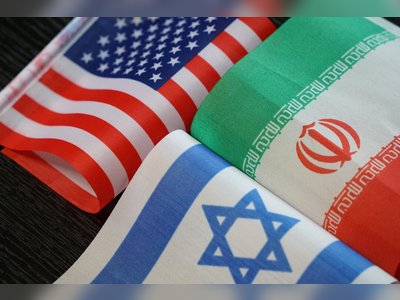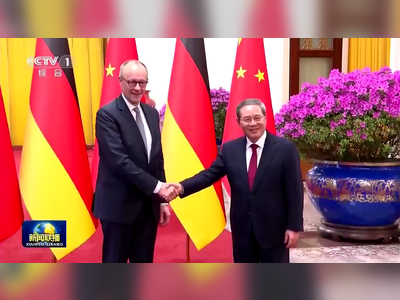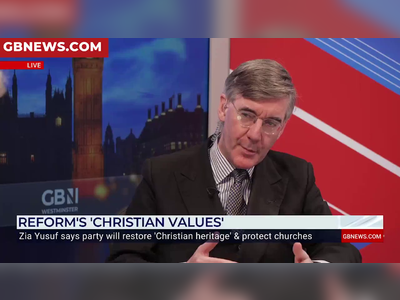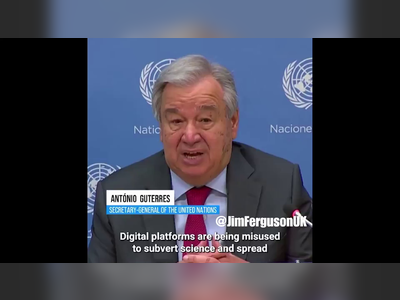Supreme Court Denies Trump's Emergency Appeal as Sentencing Proceeds
Trump faces legal defeat as the U.S. Supreme Court paves way for sentencing in hush-money case
In a landmark decision, the U.S. Supreme Court has decided against former President Donald Trump’s emergency appeal, allowing the sentencing in his notorious hush-money case to proceed as scheduled.
This ruling marks a substantial setback for Trump, who is poised to be inaugurated once again as President of the United States within just ten days.
The sentencing, pivotal in its symbolism, is slated for today at 15:30 CET.
The case in question, centered around the clandestine payment of $130,000 in hush-money to adult film actor Stormy Daniels during the 2016 presidential campaign, charged Trump with 34 counts of illegal actions aimed at influencing electoral outcomes.
A jury in New York delivered a guilty verdict in May, making Trump the first U.S. president in history—former or current—to be convicted of a criminal charge.
Trump’s legal team fervently sought to delay the sentencing, arguing the importance of the case to his imminent role as president.
Prior appeals to lower courts had proven unsuccessful, prompting the Republican to elevate the matter to the nation’s highest judicial body.
However, with a narrow 5-4 decision, the majority of the Justices found the sentencing of 'relatively little consequence' to his presidential duties.
The dissenting opinions came from four conservative members: Clarence Thomas, Samuel Alito, Neil Gorsuch, and Brett Kavanaugh.
Despite the legal defeat, the anticipated sentencing is likely to have only symbolic impact, with Judge Juan Merchan previously suggesting the possibility of an 'unconditional discharge.' Such a resolution would record Trump’s conviction without imposing additional penalties such as imprisonment or fines, yet would firmly establish his legal guilt.
This legal saga surrounding Trump represents more than a personal blow; it is emblematic of the ongoing discord accompanying his political career.
As the 2024 U.S. elections loom, the domestic and international ramifications of Trump’s legal challenges persist as a focal point of political discourse.
Observers and analysts worldwide are scrutinizing how these developments may influence American political dynamics and international relations.
In his reaction following the Supreme Court’s decision, Trump expressed his discontent via Truth Social, the social media platform he co-founded, labeling the trial as a 'witch hunt' and reiterating claims of his innocence.
The situation underscores Trump's contentious relationship with the judiciary and hints at the continuing tumult that may characterize his forthcoming term.
The world now watches closely as Trump attempts to navigate these legal waters while preparing to assume office amidst a global landscape attentive to the implications this holds for political stability and governance.
This ruling marks a substantial setback for Trump, who is poised to be inaugurated once again as President of the United States within just ten days.
The sentencing, pivotal in its symbolism, is slated for today at 15:30 CET.
The case in question, centered around the clandestine payment of $130,000 in hush-money to adult film actor Stormy Daniels during the 2016 presidential campaign, charged Trump with 34 counts of illegal actions aimed at influencing electoral outcomes.
A jury in New York delivered a guilty verdict in May, making Trump the first U.S. president in history—former or current—to be convicted of a criminal charge.
Trump’s legal team fervently sought to delay the sentencing, arguing the importance of the case to his imminent role as president.
Prior appeals to lower courts had proven unsuccessful, prompting the Republican to elevate the matter to the nation’s highest judicial body.
However, with a narrow 5-4 decision, the majority of the Justices found the sentencing of 'relatively little consequence' to his presidential duties.
The dissenting opinions came from four conservative members: Clarence Thomas, Samuel Alito, Neil Gorsuch, and Brett Kavanaugh.
Despite the legal defeat, the anticipated sentencing is likely to have only symbolic impact, with Judge Juan Merchan previously suggesting the possibility of an 'unconditional discharge.' Such a resolution would record Trump’s conviction without imposing additional penalties such as imprisonment or fines, yet would firmly establish his legal guilt.
This legal saga surrounding Trump represents more than a personal blow; it is emblematic of the ongoing discord accompanying his political career.
As the 2024 U.S. elections loom, the domestic and international ramifications of Trump’s legal challenges persist as a focal point of political discourse.
Observers and analysts worldwide are scrutinizing how these developments may influence American political dynamics and international relations.
In his reaction following the Supreme Court’s decision, Trump expressed his discontent via Truth Social, the social media platform he co-founded, labeling the trial as a 'witch hunt' and reiterating claims of his innocence.
The situation underscores Trump's contentious relationship with the judiciary and hints at the continuing tumult that may characterize his forthcoming term.
The world now watches closely as Trump attempts to navigate these legal waters while preparing to assume office amidst a global landscape attentive to the implications this holds for political stability and governance.
Translation:
Translated by AI
AI Disclaimer: An advanced artificial intelligence (AI) system generated the content of this page on its own. This innovative technology conducts extensive research from a variety of reliable sources, performs rigorous fact-checking and verification, cleans up and balances biased or manipulated content, and presents a minimal factual summary that is just enough yet essential for you to function as an informed and educated citizen. Please keep in mind, however, that this system is an evolving technology, and as a result, the article may contain accidental inaccuracies or errors. We urge you to help us improve our site by reporting any inaccuracies you find using the "Contact Us" link at the bottom of this page. Your helpful feedback helps us improve our system and deliver more precise content. When you find an article of interest here, please look for the full and extensive coverage of this topic in traditional news sources, as they are written by professional journalists that we try to support, not replace. We appreciate your understanding and assistance.











